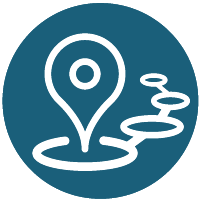Bridging Generations: Edtech and Adult Learners' Impact on K-12 Education
,
HBGCC - 210AB
Session description
Outline
1. Introduction and importance of adult education in the P20 context (10 minutes)
- Overview of adult learner demographics and needs
- Impact of adult education on family dynamics and K-12 student success
2. Triple E Framework in P20 education context (20 minutes)
- Explanation of Engage, Enhance, Extend
- Interactive activity: Evaluating tools using Triple E for both adult and K-12 learners (audience participation)
3. Book Creator for adult learners and family literacy (20 minutes)
- Demonstration of Book Creator features
- Hands-on activity: Creating a sample lesson for cross-generational learning (audience participation)
4. OTAN's Teaching with Technology tool in P20 settings (20 minutes)
- Walkthrough of the tool's features
- Guided exploration of resources applicable to both adult and K-12 education (audience participation)
5. Case studies: Texas and California P20 initiatives (20 minutes)
- Presenters share successful strategies and outcomes across adult education and K-12 settings
- Q&A with audience
6. Bridging the gap: Integrating adult education and K-12 success (15 minutes)
- Strategies for family literacy and parental involvement in K-12 education
- Addressing common P20 challenges through EdTech solutions
7. Conclusion and action planning (15 minutes)
- Participants develop an implementation plan for their specific educational context
- Resource sharing and networking
Supporting research
1. Kolb, L. (2017). Learning First, Technology Second: The Educator's Guide to Designing Authentic Lessons. ISTE.
2. Vanek, J., King, K., & Bigelow, M. (2018). Social presence and identity: Facebook in an English language classroom. Journal of Language, Identity & Education, 17(4), 236-254.
3. Belzer, A., & Kim, J. (2018). We are what we do: Adult basic education should be about more than employability. Journal of Adolescent & Adult Literacy, 61(6), 603-608.
4. OTAN (Outreach and Technical Assistance Network) research publications: https://otan.us/resources/publications/
5. Prins, E., Toso, B. W., & Schafft, K. A. (2009). "It Feels Like a Little Family to Me": Social Interaction and Support Among Women in Adult Education and Family Literacy. Adult Education Quarterly, 59(4), 335-352.**
6. Carpentieri, J. D., Fairfax-Cholmeley, K., Litster, J., & Vorhaus, J. (2011). Family literacy in Europe: Using parental support initiatives to enhance early literacy development. London: NRDC, Institute of Education.
Presenters




Session specifications
Topic:
Grade level:
Audience:
Attendee devices:
Attendee device specification:
Laptop: PC, Chromebook, Mac
Tablet: Android, iOS, Windows
Participant accounts, software and other materials:
2. Access to OTAN's Teaching with Technology tool (will be provided during the session)
3. A device with internet access
Subject area:
ISTE Standards:
Collaborator
- Partner with educators to identify digital learning content that is culturally relevant, developmentally appropriate and aligned to content standards.
Learner
- Set professional learning goals to apply teaching practices made possible by technology, explore promising innovations, and reflect on their effectiveness.
- Foster digital literacy by encouraging curiosity, reflection, and the critical evaluation of digital resources.

 Back
Back Trips and Tours
Trips and Tours Recorded Session
Recorded Session